Biomass boilers have emerged as a popular alternative to traditional fossil fuel boilers in recent years, particularly as people become increasingly aware of the impact of greenhouse gas emissions on the environment. In questo articolo, we will provide a comprehensive overview of biomass boilers, including their benefits, types, working principles, and installation.
What is a biomass boiler?
A biomass boiler is a type of boiler that uses biomass as fuel to generate heat and hot water. Biomass refers to organic materials derived from plants and animals, come trucioli di legno, sawdust, agricultural waste, and animal waste.
Biomass boilers work by burning biomass fuel in a combustion chamber, which heats up a scambiatore di calore. The heat from the heat exchanger is then used to heat water or generate steam, which can be used for space heating, hot water, or to generate electricity.
biomass heating systems are a renewable and sustainable source of energy, as biomass fuel is derived from organic materials that can be replenished through natural processes. They can also help reduce greenhouse gas emissions and provide a more affordable and reliable source of energy compared to traditional fossil fuels.
Serve una nuova caldaia?
How does a biomass boiler work?
A biomass boiler works by burning biomass fuel in a combustion chamber, which heats up a heat exchanger. The heat from the heat exchanger is then used to heat water or generate steam, which can be used for space heating, hot water, or to generate electricity.
The biomass fuel is typically stored in a fuel hopper, which feeds the fuel into the combustion chamber via an auger or conveyor system. Once in the combustion chamber, the biomass fuel is ignited and burned, producing heat and gases.
Benefits of using biomass heating systems
| Benefit | Description |
|---|---|
| Renewable energy source | Biomass is a renewable and sustainable source of energy, as trees and crops can be grown and harvested to provide biomass fuel. |
| Lower carbon emissions | Biomass boilers produce lower carbon emissions than fossil fuel boilers, helping to reduce greenhouse gas emissions and combat climate change. |
| Reduced reliance on fossil fuels | Using a local and renewable energy source reduces dependence on fossil fuels, which are subject to price fluctuations and supply disruptions. |
| Lower heating costs | Biomass boilers can be more cost-effective than traditional fossil fuel boilers, particularly in areas where biomass fuel is readily available. |
| Versatile fuel options | Biomass boilers can burn a variety of fuels, including wood pellets, trucioli di legno, logs, and straws, allowing for flexibility in fuel choice. |
| Local economic benefits | Using biomass fuel can provide economic benefits to local communities by supporting the growth of the forestry and agriculture sectors and creating jobs in the local economy. |
| Reduced waste | Biomass boilers can burn waste wood and other biomass materials, reducing the amount of waste sent to landfill sites. |
In sintesi, using biomass heating systems offers a range of benefits, from lower carbon emissions and heating costs to greater energy security and local economic benefits. With the versatility to burn a variety of fuels, biomass heating systems offer a flexible and sustainable energy solution for homeowners and businesses.
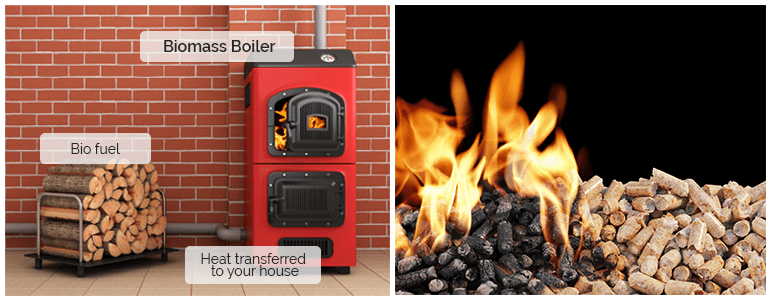
Types of biomass boilers
There are several types of biomass boilers available on the market, each with its own unique advantages and disadvantages. Some of the most common types of biomass boilers include:
- Pellet boilers: Pellet boilers use compressed wood pellets as fuel. These pellets are typically made from sawdust or other wood waste materials. Pellet boilers are highly automated and can be easily controlled using a thermostat or computer. They are also very efficient and produce very little ash. Tuttavia, they can be more expensive to operate than other types of biomass heating systems, and they require regular cleaning and maintenance.
- Wood chip boilers: Wood chip boilers use wood chips as fuel. These chips can be produced from a variety of wood sources, including logs, branches, and waste wood. Wood chip boilers are more affordable to operate than pellet boilers, and they can be more efficient than log boilers. They also produce less ash than log boilers. Tuttavia, they can be more expensive to install than other types of biomass boilers, and they require larger storage space for the wood chips.
- Log boilers: Log boilers use logs as fuel. These boilers are typically used in residential settings. Log boilers are the most affordable type of biomass boiler, and they are easy to operate and maintain. Tuttavia, they are less efficient than other types of biomass heating systems, and they produce more ash than pellet or wood chip boilers. They also require more frequent fuel refilling.
- Multi-fuel boilers: Multi-fuel boilers can burn a variety of biomass fuels, including wood pellets, trucioli di legno, logs, and straw. These boilers are highly versatile and can be used in a variety of settings. Tuttavia, they can be more expensive to install and operate than other types of biomass heating systems.
- CHP (Combined Heat and Power) caldaie: CHP boilers generate both heat and electricity from biomass fuel. These boilers are highly efficient and can provide significant cost savings over traditional separate heat and power systems. Tuttavia, they are more complex to operate and maintain, and they require a larger investment upfront.
- Biomass district heating systems: Biomass district heating systems use a central biomass boiler to provide heat and hot water to multiple buildings. These systems can be highly efficient and cost-effective, particularly in rural areas. Tuttavia, they require significant planning and investment, and they may not be suitable for all locations.
In sintesi, the type of biomass boiler that is best suited for a particular application depends on a variety of factors, including the type of fuel available, the heating requirements of the property, and the budget available for installation and maintenance. It is important to carefully consider these factors when selecting a biomass boiler.
Ottieni un prezzo fisso online in 20 secondi:
How much does a biomass boiler cost?
The cost of a biomass boiler can vary depending on a number of factors, including the size and type of boiler, the fuel type, and the installation requirements. Tuttavia, in general, biomass heating systems can be more expensive to install than traditional fossil fuel boilers, but they can offer lower heating costs over time due to the lower cost of biomass fuel.
Here are some general cost ranges for biomass boilers:
| Type of Biomass Boiler | Size Range | Approximate Cost |
|---|---|---|
| Small domestic biomass boiler | Under 15 kW | £5,000-£10,000 |
| Larger domestic biomass boiler | 15-50 kW | £10,000-£20,000 |
| Small commercial biomass boiler | 50-100 kW | £20,000-£30,000 |
| Large commercial biomass boiler | Over 100 kW | £30,000-£100,000+ |
Please note that these are rough estimates and the actual cost of installation will depend on various factors, such as the complexity of the installation and the type of fuel used. Inoltre, some biomass heating systems may be eligible for government subsidies or grants, which can help to offset the cost of installation and operation.
It is also worth considering the long-term savings that can be achieved by using a biomass boiler. While the initial cost of installation may be higher than a traditional fossil fuel boiler, the lower cost of biomass fuel can result in significant cost savings over time, particularly in areas where fossil fuel prices are high. Furthermore, using a renewable energy source like biomass can help to insulate homeowners and businesses from the volatility of fossil fuel prices and reduce their carbon footprint.

What is the difference between a biomass boiler and a traditional boiler?
The main difference between a biomass boiler and a traditional boiler is the fuel source used to generate heat. A traditional boiler typically uses fossil fuels such as gas naturale, olio, o propano to generate heat, while a biomass boiler uses organic materials such as wood pellets, chips, logs, or straw to produce heat.
Here are some key differences between biomass boilers and traditional boilers:
| Feature | Caldaia a biomassa | Traditional Boiler |
|---|---|---|
| Fuel Source | Organic materials such as wood pellets, chips, logs, or straw | Fossil fuels such as natural gas, olio, or propane |
| Efficienza | Generally more efficient due to advanced combustion technology | Typically less efficient due to lower combustion temperature and less efficient heat transfer |
| Manutenzione | Requires more frequent maintenance for fuel delivery and ash removal systems | Requires less maintenance but may require more repairs over time |
| Costo di installazione | Can be more expensive due to specialized equipment | Generally less expensive due to widespread availability |
| Environmental Impact | Lower greenhouse gas emissions and use of renewable resources | Higher greenhouse gas emissions and reliance on finite fossil fuels |
Please note that these are generalizations and may not apply to every individual situation. Factors such as specific equipment and usage habits can affect the performance and cost of each type of boiler.
Ricevi preventivi GRATUITI sulla caldaia
Ricevi preventivi GRATUITI per le caldaie locali oggi
Confronta i migliori prezzi
Risparmia denaro sulla tua nuova caldaia oggi!
Where can I buy a biomass boiler?
Biomass boilers can be purchased from a variety of suppliers, including manufacturers, distributors, and installers. Here are some places you can look to buy a biomass boiler:
- Manufacturer websites: Many biomass boiler manufacturers have websites where you can browse their product offerings and find contact information for sales representatives.
- Distributors: Distributors work with multiple manufacturers to offer a range of biomass boiler options. They may have a physical showroom or online store where you can view and purchase products.
- Local installers: Many HVAC and plumbing contractors offer biomass boiler installation services. They may have relationships with specific manufacturers or distributors and can provide recommendations based on your specific needs.
- Online marketplaces: You can find biomass boilers for sale on online marketplaces such as eBay or Amazon. Tuttavia, it is important to do your research and ensure that the seller is reputable and that the product meets your specific requirements.
- Trade shows and events: Attending industry trade shows and events can provide an opportunity to see biomass heating systems in person and speak with manufacturers and distributors.
When considering where to purchase a biomass boiler, it is important to research the reputation and experience of the supplier, as well as their level of customer service and support. Inoltre, you should consider the availability of local installation and maintenance services, as well as any government subsidies or grants that may be available to offset the cost of purchase and installation.
Conclusione
Biomass boilers are a renewable and sustainable source of energy that can provide several benefits, including environmental benefits, cost savings, and energy security. There are several types of biomass heating systems available, including pellet boilers, wood chip boilers, and log boilers. The installation of biomass heating systems requires careful planning and consideration to ensure safe and efficient operation.

Cerco caldaie con lavorazioni sofisticate, ottima qualità?
La caldaia Fangkuai può sempre fornire ciò che desideri.
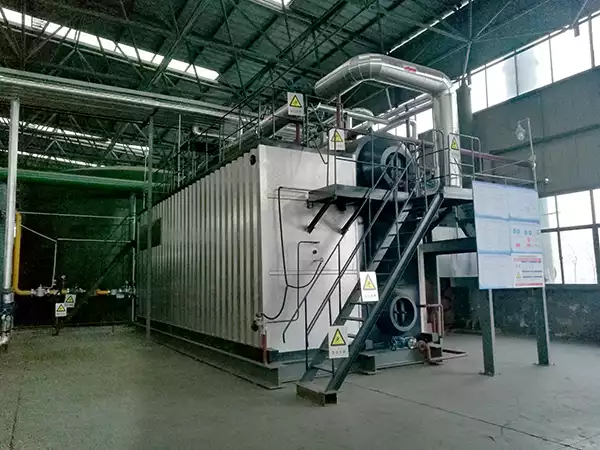
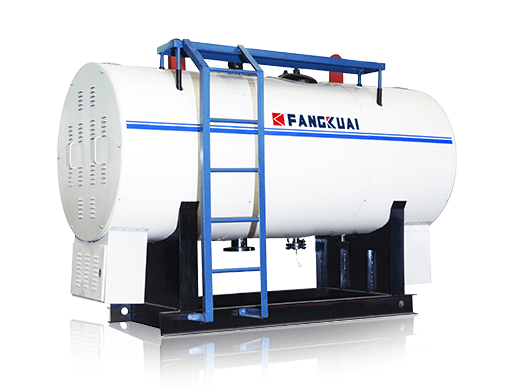 Caldaia elettrica per acqua calda
Caldaia elettrica per acqua calda 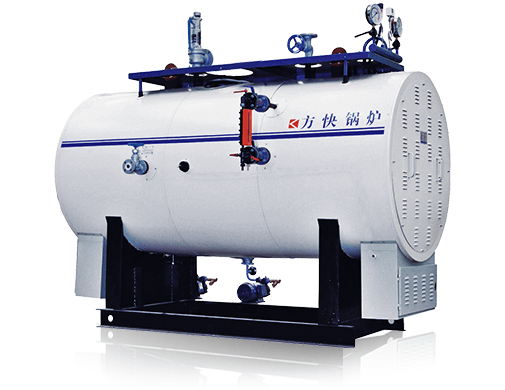 Caldaia a vapore elettrica
Caldaia a vapore elettrica 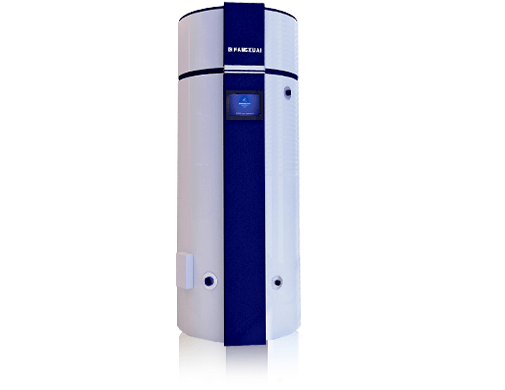 Caldaia ad acqua calda a gas V6
Caldaia ad acqua calda a gas V6 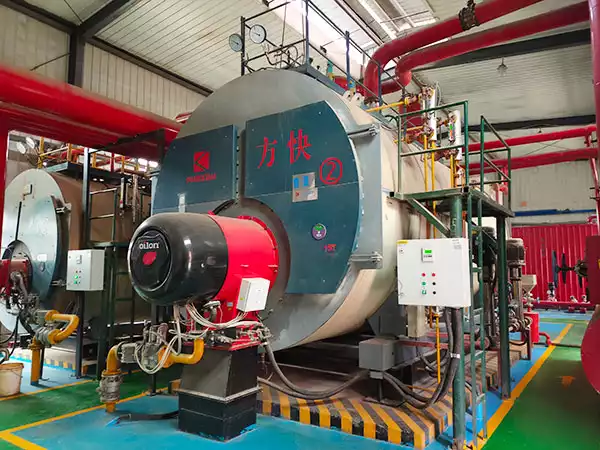 2023 Guida ai prezzi delle caldaie a gas | Confronto dei costi della caldaia a gas domestica
2023 Guida ai prezzi delle caldaie a gas | Confronto dei costi della caldaia a gas domestica 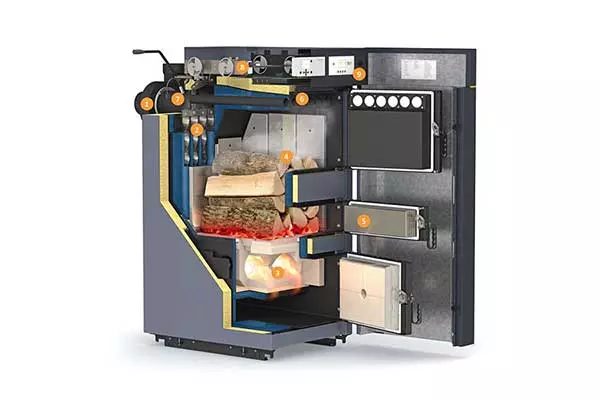 Le migliori caldaie a gassificazione del legno in vendita | Guida all'acquisto
Le migliori caldaie a gassificazione del legno in vendita | Guida all'acquisto 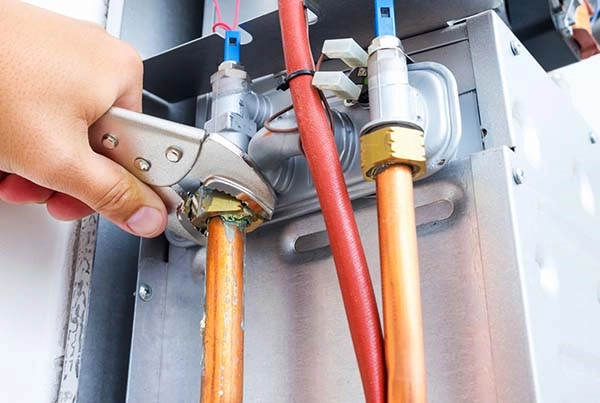 Prezzi della caldaia combinata elettrica | 2023 Guida all'acquisto
Prezzi della caldaia combinata elettrica | 2023 Guida all'acquisto 